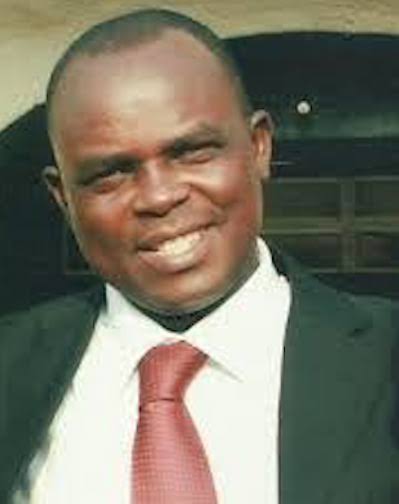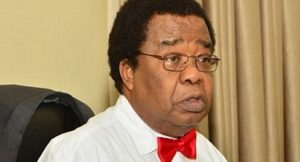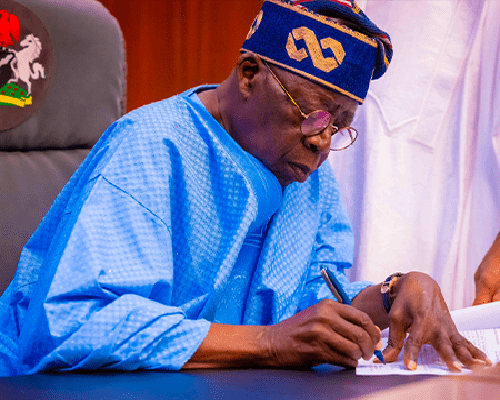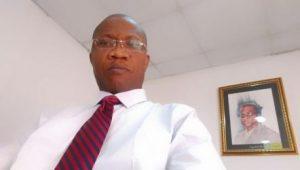By Bolanle BOLAWOLE
turnpot@gmail.com 0705 263 1058
Last Tuesday, an explosion rocked Old Bodija in Ibadan, the Oyo State capital. The panic and stampede that ensued were better imagined than witnessed; so also, the magnitude of destruction and loss suffered. Lives were lost; at the last count five as a direct consequence of the blast. Other deaths linked to the blast have since been recorded. Also at the last count, close to 100 persons were injured. A yet-to-be-specified number of houses and businesses were uprooted, flattened or violently shaken by the explosion. The destruction reportedly travelled as far as the Oyo State Governor’s Office kilometers away. At the end of the day, properties lost could be estimated in billions of Naira.
Who dunnit? Governor Seyi Makinde has said the explosion was the handiwork of illegal miners who stored explosives in a strictly residential area. Some independent assessors or observers disagree, saying the impact the explosion created was beyond the capacity of explosives but that it was an outright act of terrorism. Well, until the contrary is proved, I go with Gov. Makinde’s explanation.
This, then, brings up the question of illegal miners in Oyo State in general. In this column on Sunday, 18 April, 2021, I drew the attention of Gov. Makinde to the activities of illegal miners in the state, with the title “Is Makinde aware of this?” Published on page 22 of that day’s edition of the Sunday Tribune, it obviously caught the attention of the government as a result of which a Special Adviser to the governor called me afterwards to say their government was aware of the activities of the illegal miners and that something was being done.
I reproduce that piece here in part: “The write-up you are about to read was forwarded to me by a friend who now lives in the United States of America. We had been comrades at the then University of Ife (now Obafemi Awolowo University), Ile-Ife. Interestingly, the write-up is an investigative report by the Abuja-based Daily Trust newspaper and their object of interest – Ibadan, the capital of Oyo State. It reads: Strabag Precious Stone International market in Ibadan is a silent gold mine for many billionaires across West Africa; yet, (the Nigerian) government is being short-changed as they (the billionaires across West Africa) fail to pay royalties while the market (itself) remains an eyesore. If you are visiting Strabag precious stone international market, Ojoo, Ibadan, Oyo State for the first time, you will not believe that billions of Naira is being exported out of the community monthly.
From the narrow entrance to the market, which is dominated by foreigners from other West African countries, everywhere looks unkempt and dirty with dilapidated structures. Owners of some of the buildings have vacated them but still receive monthly rents of between N1,500 and N2,000 from the tenants.
Located within the yard of the defunct Strabag construction company, the company which constructed the Lagos-Ibadan expressway in the 70s, the market occupies about 250 houses and has only 10 percent of Nigerians earning their daily income in the market while 90 percent foreigners operate in the market. Every Thursday, precious stones worth N500m are moved out of Ibadan to countries like Thailand, China, the United States of America, Hong Kong and other developed countries of the world by some powerful billionaires from West African countries.

Our correspondent who went round the market disguised as a customer revealed that stones like tourmaline, Beryl, morganite and granite are exported through NAHCO airport, Ikeja while buyers launder money through the land borders so that the government cannot determine the amount spent on transactions. Daily Trust Saturday gathered that officials of the Ministry of Mines and Steel both at the federal and state levels, the Nigeria Immigration Service, and Customs at airports are also culprits as they are allegedly being bribed to keep mute.
Our correspondent gathered that most of the precious stone merchants who are foreigners live in the most sophisticated estates in Ibadan, Lagos, Abuja and other big cities in Nigeria. Some of the merchants have been in the business in Ibadan for over 40 years because of the stability of precious stones deposited in the Oke-Ogun area of the state while their agents hunt for precious stones in the 36 states of the country, said a source who spoke to our correspondent in confidence. The gimmicks employed by the foreign businessmen include wooing village leaders with construction of roads leading to their villages and building of schools for their children.
It appears Section 94, Chapter 3 of the Mining Act 2007 (as amended) which states that ‘No person shall purchase any mineral unless he holds a licence to purchase minerals issued under this Act’ does not apply to the foreigners as many of them dare Nigerians in the market. A Nigerian source in the market told Daily Trust Saturday: ‘Government is aware we are here. Government raided us in this market some time ago but the foreigners were released after the intervention of their big men. Many petitions have emanated from here but were swept under the carpet. With this business, the Nigerian government needs little money from the oil sector if they are serious. What we are experiencing here can only happen in Nigeria and no other country in the world. How will you take precious stones out of a country without paying royalty?’
Precious stones, which are determined by their colour and texture, are in large deposits in every state in Nigeria, especially in the Oke-ogun area of Oyo State where mining camps are numerous. Our correspondent further gathered that other states in Nigeria have alluvial precious stones while Oyo State is blessed with pecmitine (vein), which is exported from the state without the state getting anything in return.
Another source in the market told our correspondent that the foreigners control the market by determining how much they buy gemstones in Nigeria and how much it is sold in the country. Ibadan is the centre of gemstones in Nigeria, the centre of marketing and the centre of exploitation…
Government has no idea what is going on. There are industrial stones which they export and refine but the gem stones are the ones they cut and use in making jewelry. We have the best stones in the world. Talk about tourmaline, sapphire, emerald and other gemstones; we have the best. The international market prefers our stones to those of other countries.
The foreigners – Malians, Burkinabes, Guineans, Gambians, Senegalese – determine the market: How much they buy and how much they sell. If you talk, they tell you ‘This is Nigeria’! They are also members of ECOWAS and if you take them to any station, they always have their way. We want to know who is protecting the government’s interest here. How do they pay royalties and to who?
Petitions have emanated from here but the (authorities) didn’t act on them because people who are supposed to act are also benefiting from the illegality. We are not against international trading but due process must be followed. There was a time we brought up an issue here but before we knew it, some ambassadors called the Nigerian government officials saying that their men were doing their business here in Nigeria and we should not disturb them because we are all members of ECOWAS.
Meanwhile, you cannot try that in their country! There is no country in the world where such a thing can be done except in Nigeria! You live in a country, go to their mining camp, and exploit it without paying royalties to anyone? Never! It is either they buy it from the site and take it directly to the airport or they take it from here to the airport without notifying the government and our government does not care… Here, we sell (gems) per gram while, over there, they sell per character. When you sell one gram for $5, they sell a character for $500. Meanwhile, one gram contains five characters.
As at the time of going to press, the chief press secretary to the governor, Taiwo Adisa, neither picked calls nor responded to text messages for us to know the efforts of the government in addressing the abnormalities”.
That was almost three years ago! Was this article brought to Gov. Makinde’s attention? Did the Special Adviser bring it to his attention? What was it that was being done by the government as the Special Adviser told me, and how far did they go with it? Illegal mining is rampant all over Oyo state; it is not limited only to Ibadan. Illegal miners also reside all over the place in Oyo State and not only in the Bodija area of Ibadan. So, the disaster that struck Ibadan last Tuesday must be prevented from striking other parts of the state.
Malian illegal miners were some of the illegal miners mentioned in this piece that I wrote about three years ago. Malian illegal miners have also been fingered in the Ibadan explosion. Can we then say we did not know or that we were not forewarned?
It is not only in Oyo State that illegal mining strives; we are familiar with the fact that in many parts of the North, illegal mining is the in-thing. Crude oil theft and illegal refineries signpost the South-South. One of the major causes of insurgency and insecurity in the North is said to be the activities of illegal miners. That dangerous trend has spread to the South-west. In many South-west states today, we have the activities of illegal miners – Oyo, Osun, Ekiti, Ondo, name it! And wherever we have illegal mining, insecurity and insurgency take roots.
The Minister of Solid Minerals, Dele Alake, was damning when he spoke before the House of Representatives committee on solid minerals while defending his ministry’s 2024 budget. He said: “One pernicious discovery we have made is that a lot of these banditry, terrorism and insecurity… are actually sponsored by illegal miners. These are not your artisanal miners. They are not people who pick gold on the ground. These are heavy and powerful individuals in our country. And they are Nigerians. They are not foreigners. Yes, you can see foreigners as symptoms but they are not the disease. Nigerians are the powers behind those foreigners that you see on the streets…”
The vile dictator, Gen. Sani Abacha, said: “Any insurrection that lasts more than 24 hours, a government official has a hand in it” Tell me, for how many years have we suffered insurrection, insurgency, banditry and terrorism in this country, with government after government appearing helpless?
We have heard that powerful political leaders and traditional rulers are behind illegal mining activities not only in the South-west but all over the country, with attendant dire consequences for the security and well-being of the regions concerned and their long-suffering people. Why should leaders be more interested in feeding their greed than leverage on the abundant resources in their locality to give their people BETTER LIFE? If the South-west is not to become another Zamfara, the time to act is now!
- Former Editor of PUNCH newspapers, Chairman of its Editorial Board and Deputy Editor-in-chief, BOLAWOLE was also the Managing Director/ Editor-in-chief of THE WESTERNER newsmagazine. He writes the ON THE LORD’S DAY column in the Sunday Tribune and TREASURES column in New Telegraph newspaper on Wednesdays. He is also a public affairs analyst on radio and television.






















